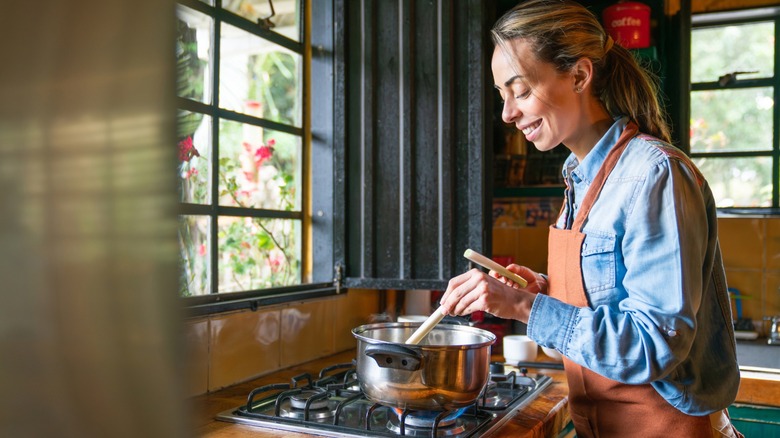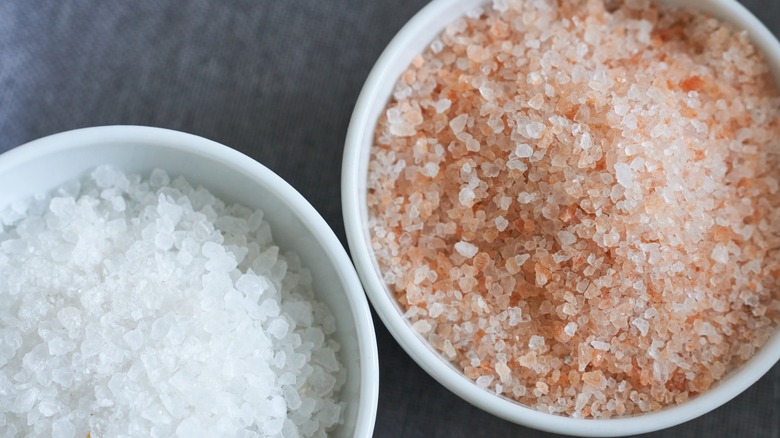This Kitchen Tool Will Instantly Make Cooking Way Easier
We may receive a commission on purchases made from links.
Salt is truly the seasoning of life, the right-hand companion that accompanies any talented home cook through the journey of making delicious food. More than simply adding sodium to your dish, salt actually enhances flavor and texture, providing an important backbone to just about all cuisines. Whether you are crusting a juicy steak, putting the finishing touches on a belly-warming soup, or even salting your pasta water, you need salt. However, the pros say that both a shaker and a box/container of salt straight from the store are the wrong way to dispense this vital mineral. What you want is a salt cellar, which you might also see called a salt box.
If you've ever watched your favorite celebrity chefs on TV, like Ina Garten (whose go-to is kosher salt) or Ree Drummond, you've noticed that they pinch salt out of a little bowl or container to season their food, instead of shaking or pouring it on. This is not just for looks, either, although you undoubtedly seem more "cheffy" using a salt cellar. When you see and feel the amount of salt you are putting in your dish, you have more control over the seasoning. Especially if you are tasting as you cook, which is another pro move, you will always know exactly where you stand on saltiness, and you can easily make adjustments.
Add a cute salt cellar (or two!) and watch your cooking improve
While you can technically turn just about any open vessel into a salt cellar, we like the type with a lid. This set of two bamboo salt cellars has magnetic lids that swivel open and closed. We appreciate that they're a duo, meaning that we can position one by the stove as we cook, then put one on the table with flaky sea salt for individual use by our loved ones. The lid is optional, but we're fans, given that salt does not technically ever go bad, but humidity and stray odors can degrade it to the point where you'd rather just throw it away. A salt cellar with a lid is more protected.
Remember that, when in doubt, you are better to use too little salt than too much. You can always go back and add more, but it's hard to remove aggressive saltiness once a mishap has occurred, and you could ruin your whole dinner. Over time, using a salt cellar and feeling your way to perfect seasoning, you will develop an intuitive sense for exactly how much salt a dish needs. In this way, you will become a more hands-on home chef, and not be as reliant on measuring salt with a spoon or trying to peek at granules as they leave a shaker.

